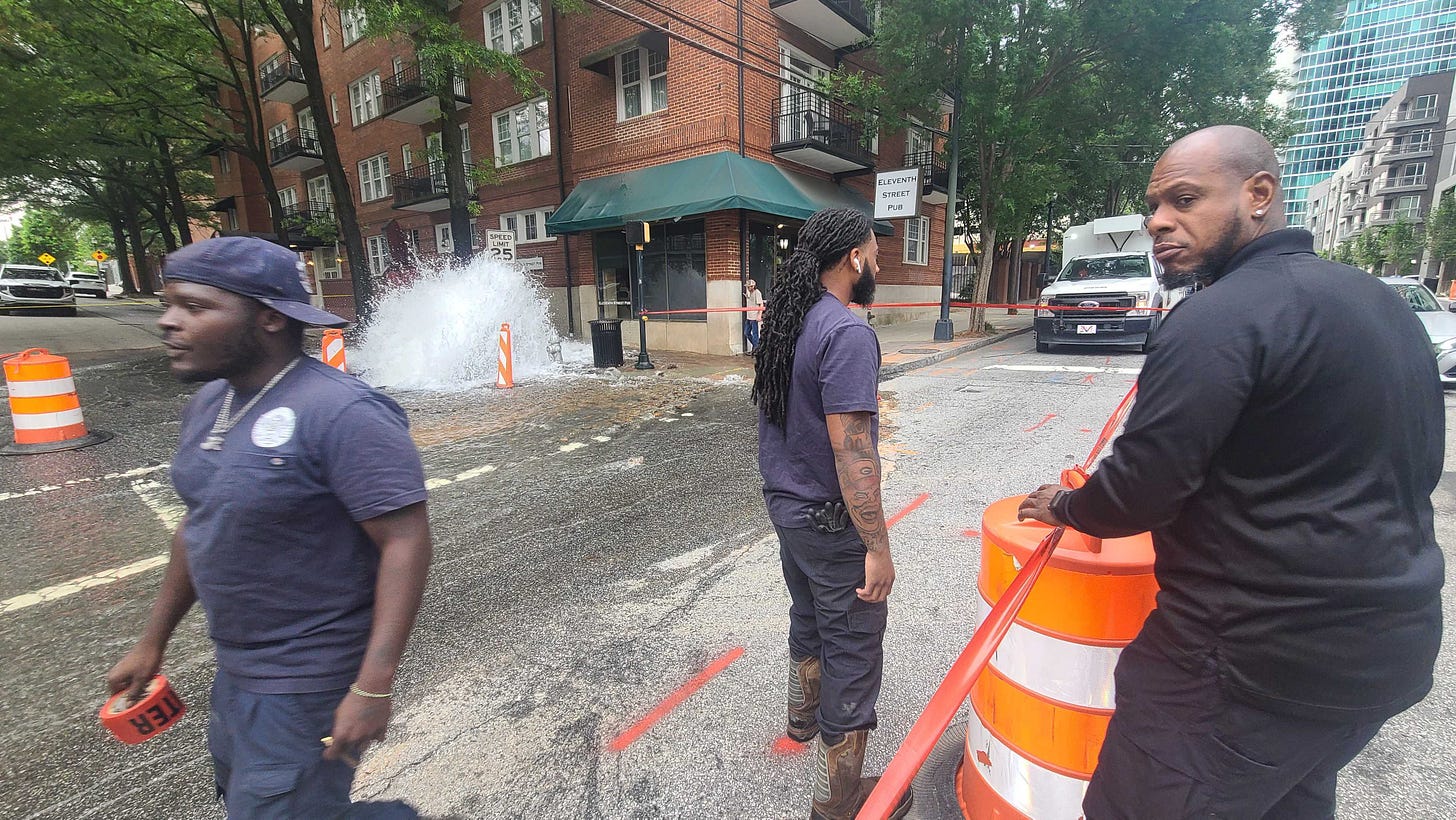Water, Water Everywhere
Do not, my friends, become addicted to water. It will take hold of you, and you will resent its absence.
(Updated.) When blown water mains in Atlanta blew up John Aba’s weekend plans, he wanted to look at the problem firsthand. Aba, 37, found himself on Joseph E. Boone Boulevard at Brawley, watching a dozen watershed workers in orange vests sitting around the remains of a 80-year-old clay pipe, waiting to get to work.
Aba, co-founder of Comedy Hype in Castl…
Keep reading with a 7-day free trial
Subscribe to The Atlanta Objective with George Chidi to keep reading this post and get 7 days of free access to the full post archives.




